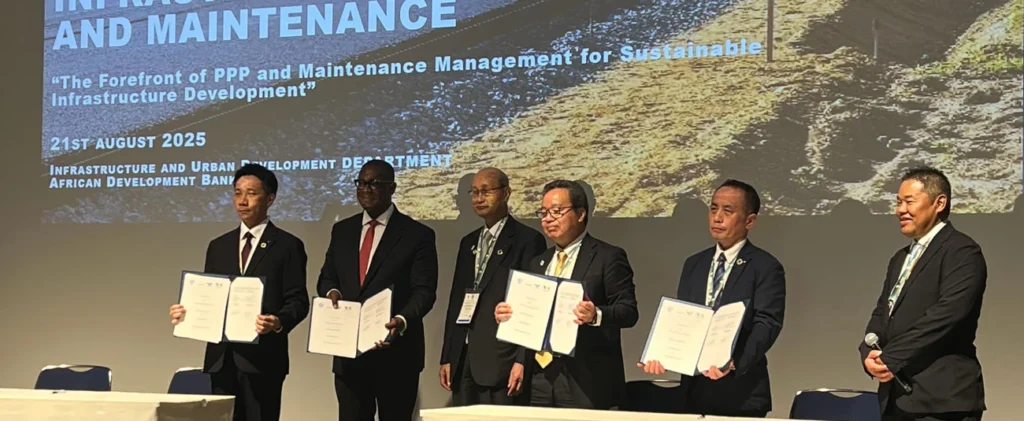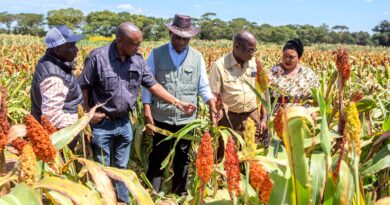AfDB Partners with Japan on Sustainable Road Maintenance in Africa
The African Development Bank (AfDB) has signed a Letter of Intent (LoI) with Shimizu Corporation, Kao Corporation and Nippon Road Co. Ltd to advance the deployment of innovative, climate-resilient road maintenance solutions across Africa.
The agreement was formalised on 21 August on the sidelines of the Ninth Tokyo International Conference on African Development (TICAD9) in Yokohama, Japan. It was signed by Solomon Quaynor, AfDB Vice-President for Private Sector, Infrastructure and Industrialisation, alongside senior executives from the three Japanese companies.
The LoI establishes a framework for cooperation, knowledge-sharing and potential co-financing opportunities to strengthen sustainable infrastructure in Africa. At the heart of the collaboration is the consortium’s PET Asphalt Concrete technology, a reinforced asphalt mixture using recycled PET plastic bottles, selected in June 2025 under the Bank’s Sustainable Road Maintenance Programme for Africa (SRMPA).
This solution, which supports circular economy principles, is designed to improve sustainability and durability in Africa’s road maintenance sector while addressing climate change challenges.
Under the agreement, AfDB will coordinate with governments, lead awareness campaigns, build local capacity and explore financing options. Shimizu, Kao and Nippon Road will carry out feasibility studies, test the PET Asphalt Concrete in different African contexts, and assess opportunities for scaling up deployment.
“The Sustainable Road Maintenance Programme for Africa (SRMPA) is an innovative initiative by the Bank aimed at protecting infrastructure investments from the impacts of climate change,” said Quaynor. “Partnering with Shimizu, Kao and Nippon Road will enable Africa to benefit from cutting-edge circular economy technology while tackling the growing backlog of road maintenance.”
Mr Kazuya Osako, Managing Officer and Director of the International Civil Engineering Division at Shimizu Corporation, emphasised collaboration with African partners as crucial to the success of the technology. He revealed that pilot testing of the PET Asphalt Concrete began in Kenya in May this year.
The collaboration is expected to pave the way for sustainable, climate-resilient road networks across Africa, reducing long-term costs while creating opportunities for local industries.



